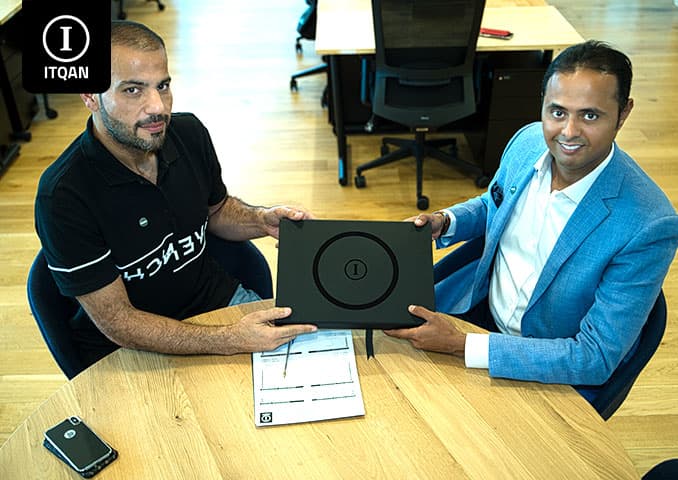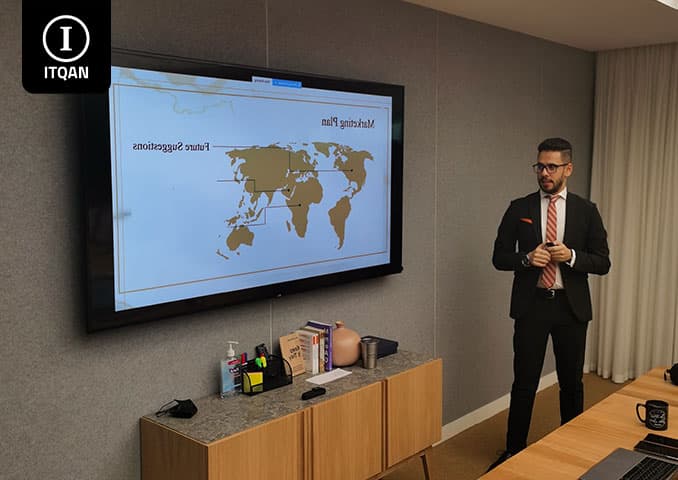Dubai is one of the world’s leading investment destinations, and its free zones are among the most prominent options for investors seeking to establish their companies in a distinguished business environment. The advantages of establishing a company in the Dubai Free Zone make it an attractive option for many businessmen and investors from all over the world. These free zones offer a range of benefits that include tax exemptions, full foreign ownership, and advanced logistics facilities, which enhances its appeal as a global business hub.
When talking about the advantages of establishing a company in the Dubai Free Zone, we find that the most prominent is the ease of procedures, as the free zones provide quick and simple registration processes, which reduces the time and effort required to start a business. In addition, these zones allow investors to benefit from tax exemptions on profits, which contributes to improving the economic feasibility of businesses. The ability to fully own the company without the need for a local partner also provides investors with a high level of control over business decisions.
Through the advantages of establishing a company in the Dubai Free Zone, investors have access to advanced infrastructure including ports, airports and roads, which facilitates export and import operations. All these advantages make the Dubai Free Zone an ideal environment for launching businesses and achieving success in a competitive global market.

جدول المحتوى
ToggleWhat is the free zone in Dubai?
Free Zones in Dubai are special business areas that provide a distinctive environment for companies, combining logistical facilities and tax exemptions, making them an attractive destination for investors from all over the world. These areas were created to facilitate the process of establishing and operating companies, and provide a favorable business environment that supports economic growth and innovation.
Free zones in Dubai have a number of advantages that make them a haven for business. Firstly, free zones offer 100% foreign ownership, meaning investors are not required to partner with local nationals, giving them full control over their companies. Secondly, these zones offer attractive tax breaks, including full exemption from corporate tax and VAT, which reduces operational costs and increases the attractiveness of investment.
The Free Zone also features advanced infrastructure including offices, warehouses, and logistics facilities, facilitating business operations and expansion. It also provides easy access to ports and airports, which enhances the efficiency of the supply chain and reduces logistics costs. In addition, the Free Zone features great flexibility in registration and licensing processes, which contributes to accelerating the establishment of companies and reducing the administrative burden.
With these advantages, the Free Zone in Dubai has become a major destination for foreign investors and startups, providing a stimulating business environment that contributes to the success and sustainability of businesses. The availability of tax exemptions, full ownership, and modern infrastructure make the Free Zone an ideal choice for companies seeking rapid and efficient growth.
Basic steps to establish a company in the free zone
Establishing a company in the free zone in Dubai requires following a set of basic steps to ensure compliance with all legal and procedural requirements. Here are the basic steps to establish a company in the free zone:
- Choosing the right free zone: Select the free zone that suits your business and needs. Free zones in Dubai vary according to the specializations and services available, such as industrial, commercial, and technological free zones.
- Determine the type of license and company activity: Choose the type of license that suits your business activity, such as a commercial, industrial, or consulting license. Make sure that the selected activity is in line with the activities permitted in the free zone.
- Prepare the required documents: Gather the necessary documents to register the company, including passports, articles of incorporation, business plan, and proof of address.
- Submitting the establishment application: Fill out the establishment application form provided by the Free Zone and submit it with all the required documents. It may be possible to submit the application electronically via the Free Zone website or by visiting the office directly.
- Paying fees: Paying fees associated with company registration, which may include company registration fees, business license, and lease agreement. Fees vary by free zone and license type.
- Signing a Lease: Sign a lease for the office or commercial space that your company will use in the free zone. Free zones typically offer a variety of office and warehouse options.
- Obtaining licenses and approvals: After submitting the establishment application, Free Zone will review and approve the documents. Upon approval, you will receive the commercial license.
- Visa Application: Apply for work and residence visas for your employees. Freezones provides customized visa services for investors and employees.
- Open a bank account: Open a company bank account at a local bank. You will need to provide documents proving the company’s registration and account authorizations.
- Tax Registration (if required): If you have any tax obligations, register your company with the relevant tax authorities. Freezone companies often benefit from tax exemptions.
- Receive the business license: After completing all the procedures, receive the business license and other licenses that allow you to start your business.
Documents required to establish a company in the Dubai Free Zone
To establish a company in the free zone in Dubai, a set of basic documents must be submitted, which vary slightly depending on the type of free zone and the type of business activity. Generally, the required documents include the following:
- Passports: Color copies of the passports of the founders, directors and shareholders.
- Personal Photos: Recent personal photos of founders and directors, may be required for some free zones.
- Articles of Association and Memorandum of Association: A copy of the company’s articles of association and memorandum of association, specifying the company’s structure, objectives, and the rights and duties of the partners.
- Business Plan: A detailed business plan that outlines the business, target market, and growth strategy.
- Proof of address: Proof of residential address for founders and directors, such as a utility bill or lease.
- Business License: A detailed description of the business activity that the company will conduct, specifying the type of license required (commercial, industrial, consulting, etc.).
- Lease Agreement: A copy of the lease or rental agreement for the commercial space or office in the free zone.
- Additional licenses: If the activity requires special licenses or permits (such as health or environmental licenses), these must also be submitted.
- Power of Attorney Documents: If the application is being made through an agent, legal power of attorney documents must be submitted authorizing the agent to complete the procedures on behalf of the company.
- Legal Authorizations: Documents that prove the authorization of directors or shareholders responsible for signing legal documents.
- Application form: Complete the company establishment application form provided by the Free Zone Administration, and submit it with all required documents.
Advantages of establishing a company in the Dubai Free Zone
Establishing a company in the Free Zone in Dubai offers a range of advantages that make it an attractive destination for investors and companies. Here are the most prominent advantages:
- Full Foreign Ownership: In most freezones, foreign investors can own 100% of the company’s shares without the need for a local partner. This gives them complete control over the company’s operations and strategic decisions.
- Tax Exemptions: Freezones offer attractive tax exemptions, including full exemption from corporate tax and value added tax (VAT). This helps reduce operating costs and increase profitability of businesses.
- Simplified registration procedures: Freezones offer quick and simplified registration procedures compared to other regions, which speeds up the company formation process and reduces bureaucratic procedures.
- Advanced Infrastructure: Freezones provide modern infrastructure including offices, warehouses, and advanced logistics facilities. This contributes to facilitating business operations and improving efficiency.
- Easy work and residence visas: Companies in free zones can easily obtain work and residence visas for their employees and investors, which helps attract and recruit talent from all over the world.
- Strategic Location: Freezones are strategically located near ports and airports, facilitating shipping, export and import operations and enhancing the efficiency of the supply chain.
- Flexibility in business activities: Freezones provide flexibility in choosing and modifying business activities, allowing companies to adapt to market changes and expand their scope of work easily.
- Customized Support Services: Freezones provides integrated support services including consulting, guidance, and administrative support services, helping companies overcome challenges and achieve success.
- Intellectual Property Protection: Freezones protect companies’ intellectual property rights, such as patents and trademarks, providing additional security for businesses.
- Easy access to markets: Freezones provide companies with easy access to the markets of the Middle East, Africa, and Asia, which helps in expanding the business and achieving sustainable growth.
- Speeding up administrative procedures: Establishing companies in free zones is characterized by quick and simple administrative procedures, which reduces the time and effort required to set up and operate the company.
In conclusion, the advantages of setting up a company in the Dubai Free Zone clearly demonstrate how these business environments offer distinct opportunities for investors and companies. By taking advantage of tax exemptions, 100% foreign ownership, and simplified procedures, investors can gain tremendous competitive advantages. The advantages of setting up a company in the Dubai Free Zone also include the provision of advanced infrastructure and logistical facilities that contribute to speeding up transportation and shipping operations.
In addition, the supportive environment and integrated services make the establishment process easier and more efficient. The free zone also provides access to a wide international market, which enhances the opportunities for expansion and growth. While establishing a company in the free zone requires commitment to a number of steps and procedures, the benefits it offers make it an attractive and rewarding investment.
With the advantages of establishing a company in the Dubai Free Zone, it becomes possible to achieve business goals with greater efficiency and less complexity. Taking advantage of these advantages can enhance the success of companies and ensure their excellence in the competitive business market. Therefore, taking the step of establishing a company in the Dubai Free Zone is a smart investment decision that can have a significant positive impact on the future of the business.
The most important frequently asked questions about establishing a company in the Dubai Free Zone
Are there any tax exemptions when establishing a company in the free zone?
Yes, free zones usually offer tax exemptions on income and profits.
Can a company be established in the Free Zone without having to visit Dubai?
In some cases, a large part of the incorporation process can be done remotely, but sometimes a visit to Dubai may be required.
Can companies in the Free Zone trade with local markets in the UAE?
Some free zones allow this, but you may need additional procedures to trade with the local market.
Are there any restrictions on the number of activities a company can include?
Some free zones allow multiple activities under the same license, but there may be additional restrictions or requirements.
What is the validity period of the commercial license in the Free Zone?
The validity period of the license varies depending on the free zone, but is usually between one and three years.

















